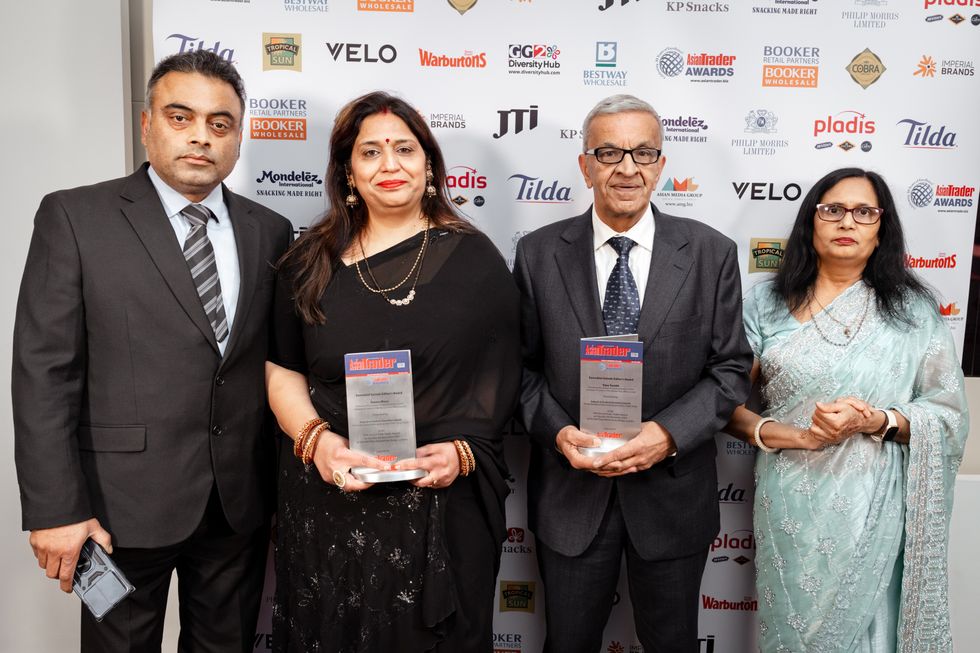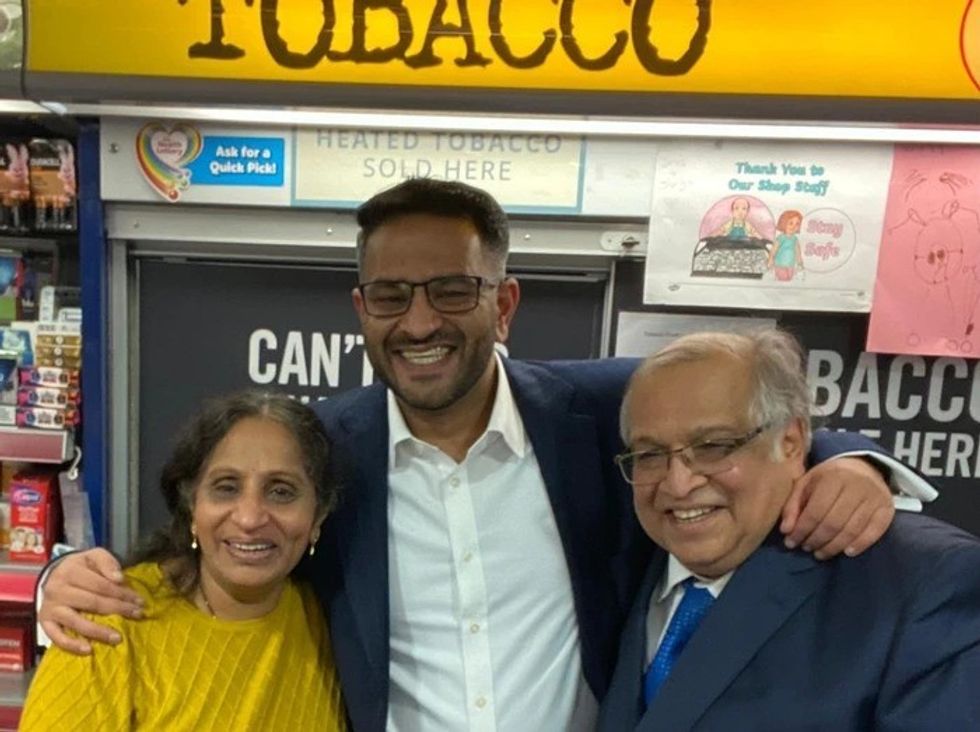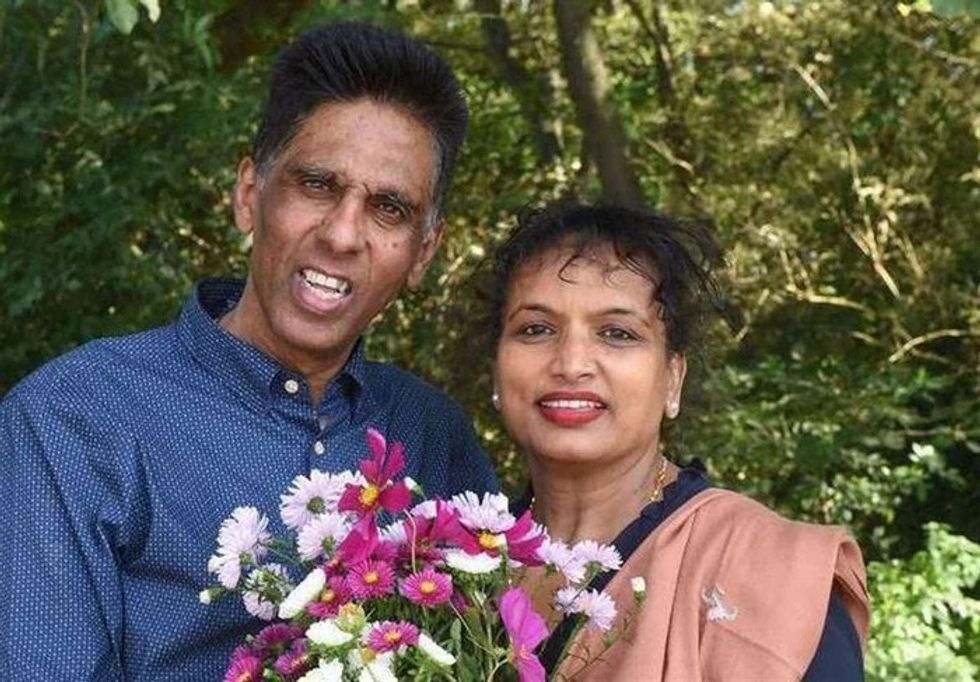By Amit Roy
IT WAS July 19, 2006, and Amar Singh, a powerful politician from India’s Samajwadi party who described himself as Amitabh Bachchan’s “younger brother”, had accompanied the Bollywood legend to Leicester where the actor was being given an honorary degree by De Montfort University.
That was then. Last Saturday (1), Singh died alone after spending months in a Singapore hospital, abandoned by his influential friends. He was 64 and had been suffering from a kidney ailment.
His body was brought back to Delhi and cremated on Monday (3).
In July 2006 it was all so different. Leicester was in a state of high excitement as Asian students and their parents, hoping to see Bachchan, crowded into the hall at the university for the graduation ceremony.
Singh sat next to Bachchan in the robing room, where the actor tried out an orange gown with a pink lapel and an academic hat, and posed with him for the formal photographs. Bachchan was first up and received his honorary Doctor of Arts from Baroness Usha Prashar, the university’s chancellor.
The idea of honouring Bachchan had been suggested by Keith Vaz, who stepped down in December last year after 32 years as the Labour MP for Leicester East.
“This is a very humbling experience,” said Bachchan. “This is not a personal honour for me but for the Indian film industry.”
Singh beamed as the university’s narrator, Dr Paul Pleasance, read the citation: “This honour is conferred upon persons of intellectual, cultural and professional distinction, and for whom the award would be a proper form of recognition by the university. Amitabh Bachchan is quite simply India’s greatest film actor.”
Bachchan’s response was a long speech in which he encouraged the young men and women in the hall to dream the impossible but not forget to recognise the sacrifice made by their parents and grandparents.
Vaz also took Bachchan and Singh to Leicester City Football Club, where they were presented with personalised T-shirts, and to one of the Asian areas of the city where police found it difficult to control the huge crowds that had gathered.
Singh was alongside Bachchan at a dinner hosted by Vaz at the House of Commons, followed the day after by a press conference.
On that visit, Singh was Bachchan’s shadow. The two men had become very close after Singh’s intervention had helped Bachchan to stave off bankruptcy after the latter had got into financial difficulty.
In 2008, Singh helped Manmohan Singh’s fragile coalition government pass a nuclear deal with the United States, which laid the foundations for the future close relationship between India and America.
But when Singh was caught in a “cash for votes” scandal in 2008 and ended up in prison and later in hospital, he was bitter that neither Bachchan, whom he now dismissed as a fair-weather friend, nor any of his other powerful friends such as Anil Ambani came to visit him.
He was also upset that Bachchan’s wife, the actress Jaya Bachchan, whom he had helped to join the Samajwadi party as a Rajya Sabha member, did not quit in sympathy when he was expelled from the party.
In a recent tweet from hospital, Singh had said: “At this stage of life when I am fighting a battle of life & death I regret my over reaction against Amitji & family. God bless them all.”
A journalist, Priya Sahgal, wrote in an obituary notice for the politician: “In the end, the 64-year-old Amar Singh was all alone. He shot to fame as the man who had many powerful friends. He died as the man who had lost many powerful friends.”
However, Vaz stood out by remembering Singh’s Leicester visit in affectionate terms.
“Amar Singh was a one-off – I liked him,” Vaz told Eastern Eye.
“Few of us politicians get to be called a legend in their lifetime but he certainly was.
“His unique brand of political networking meant he had friends in every part of the Lok Sabha and indeed all over the world. I was one of them.
“He came to Leicester with Amitabh Bachchan to a tumultuous reception. I can remember the meeting at the Belgrave Neighbourhood Centre before the Big B got his first honorary degree.
“Privately he was a Netflix series on his own with intimate knowledge of so many politicians and business figures.
“We will miss his incredible political skills, his biting wit and his charisma. We will never see his like again.”
















 Davindra and Seema Misra, and Vijay and Gita Parekh
Davindra and Seema Misra, and Vijay and Gita Parekh Varchas Patel with his father Vipin and mother Jayshriben
Varchas Patel with his father Vipin and mother Jayshriben Hasmukh Shingadia and his wife Chandrika were all victims of the Horizon scandal
Hasmukh Shingadia and his wife Chandrika were all victims of the Horizon scandal


Man pleads not guilty to murder of BBC presenter's family